|
Books Should Be Free Loyal Books Free Public Domain Audiobooks & eBook Downloads |
|
|
Books Should Be Free Loyal Books Free Public Domain Audiobooks & eBook Downloads |
|
Non-fiction |
|---|
|
Book type:
Sort by:
View by:
|
By: Agnes von Blomberg Bensly | |
|---|---|
 Our Journey to Sinai
Our Journey to Sinai
Fortress-walled Saint Catherine's monastery on the Sinai peninsula has been a pilgrimage site since its founding by the Byzantine Emperor Justinian in the 6th century. According to tradition, the monastery sits at the base of the mountain where Moses received the Tablets of the Law. Set in rugged country, accessible in times past only by a many days journey by camel across barren desert, the monastery survived intact through the centuries, and, as a result, became a rich repository of religious history—told through its icons, mosaics, and the books and manuscripts in the monastery library... | |
By: Aiden Wilson Tozer (1897-1963) | |
|---|---|
 The Pursuit of God
The Pursuit of God
"As the heart panteth after the water brooks, so panteth my soul after thee, O God." This thirst for an intimate relationship with God, claims A.W. Tozer, is not for a select few, but should be the experience of every follower of Christ. But, he asserts, it is all too rare when believers have become conditioned by tradition to accept standards of mediocrity, and the church struggles with formality and worldliness. Using examples from Scripture and from the lives of saints who lived with this thirst for God, Tozer sheds light on the path to a closer walk with God. | |
By: Alban Butler (1711-1773) | |
|---|---|
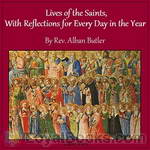 Lives of the Saints, With Reflections for Every Day in the Year
Lives of the Saints, With Reflections for Every Day in the Year
Compiled from the much larger 12 book set of "Butler's Lives of the Saints", this volume contains short biographies of the Saints, for each day of the year, followed by a reflection for each entry. | |
By: Albert Bigelow Pain | |
|---|---|
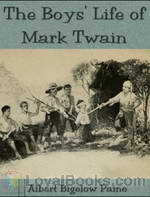 The Boys' Life of Mark Twain
The Boys' Life of Mark Twain
Albert Bigelow Paine was Samuel Langhorne Clemens’ (Mark Twain’s) biographer. He lived with Twain, collecting ideas and material for a biography, for a few years before Twain’s death in 1910. Six years later Paine published this “story of a man who made the world laugh and love him.” For those who have read or listened to Mark Twain’s works, Paine’s work is an invaluable resource to better understand Twain, the stories behind his stories and his life with those he loved and with whom he worked. | |
By: Albert Einstein (1879-1955) | |
|---|---|
 Relativity: The Special and General Theory
Relativity: The Special and General Theory
Einstein wrote this book for people who are interested in understanding the Theory of Relativity but aren't experts in scientific and mathematical principles. I'm sure many people have heard about Einstein's Theory of Relativity, but most of them don't really know what it is all about. This book gives them a chance to know more about this very famous theory without the need to take a Physics course first. This book is divided into three parts. The first part explains what special relativity is all about... | |
 Sidelights on Relativity
Sidelights on Relativity
Sidelights on Relativity contains ETHER AND THE THEORY OF RELATIVITY, an address delivered on May 5th, 1920, in the University of Leyden; and GEOMETRY AND EXPERIENCE, an expanded form of an address to the Prussian Academy of Sciences in Berlin on January 27th, 1921. (Intro from Project Gutenberg) | |
By: Albert Keim (1876-1947) | |
|---|---|
 Louis Pasteur
Louis Pasteur
Louis Pasteur famously said, "In the fields of observation chance favors only the prepared mind." Pasteur brought to the study of chemistry, microbiology, and applied immunology, a mind open, innovative, and insightful. Born of peasant stock in the French Jura, he worked with dogged determination all his life and often in the face of strenuous opposition. Through an unbroken succession of rigorously designed and meticulously performed experiments, Pasteur developed veterinary vaccines and halted grievous losses in the French wine, silk, and dairy industries... | |
By: Albert Schweitzer (1875-1965) | |
|---|---|
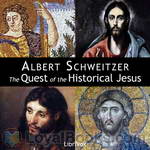 The Quest of the Historical Jesus
The Quest of the Historical Jesus
In this book, Schweitzer traces the historical progress of 'Historical Jesus' research, from Hermann Reimarus in the mid 18th century, to William Wrede at the turn of the 20th. Schweitzer showed how Jesus' image had changed with the times and with the personal proclivities of the various authors. He concluded with his own synopsis and interpretation of what had been learned over the course of the previous century. He took the position that the life of Jesus must be interpreted in the light of Jesus' own convictions, which he characterized as those of late Jewish eschatology. (Introduction from Wikipedia, modified by JoeD) | |
 J.S. Bach, Volume 1
J.S. Bach, Volume 1
An analysis of Johann Sebastian Bach's life and musical compositions, and of the artistic, philosophical, and religious world in which he acted. (Introduction by Kathleen Norland) | |
By: Albertus Magnus (1193-1280) | |
|---|---|
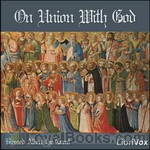 On Union With God
On Union With God
Surely the most deeply-rooted need of the human soul, its purest aspiration, is for the closest possible union with God. As one turns over the pages of this little work, written by Blessed Albert the Great towards the end of his life, when that great soul had ripened and matured, one feels that here indeed is the ideal of one's hopes. (From the Preface) | |
By: Alexander Aaronsohn (1888-1948) | |
|---|---|
 With the Turks in Palestine
With the Turks in Palestine
While Belgium is bleeding and hoping, while Poland suffers and dreams of liberation, while Serbia is waiting for redemption, there is a little country the soul of which is torn to pieces—a little country that is so remote, so remote that her ardent sighs cannot be heard.It is the country of perpetual sacrifice, the country that saw Abraham build the altar upon which he was ready to immolate his only son, the country that Moses saw from a distance, stretching in beauty and loveliness,—a land of promise never to be attained,—the country that gave the world its symbols of soul and spirit... | |
By: Alexander Berkman (1870-1936) | |
|---|---|
 Bolshevik Myth
Bolshevik Myth
The Bolshevik Myth is a book by Alexander Berkman who with his partner Emma Goldman was deported from the USA under the 1918 Anarchist Exclusion Act and shipped to the young Soviet Russia. He describes his experiences in Bolshevik Russia from 1920 to 1922, where he saw the aftermath of the Russian Revolution of 1917. Written in the form of a diary, The Bolshevik Myth describes how Berkman's initial enthusiasm for the revolution faded as he became disillusioned with the Bolsheviks and their suppression of all political dissent... | |
By: Alexander Hamilton (1755/1757-1804) | |
|---|---|
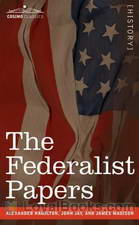 The Federalist Papers
The Federalist Papers
In order to promote the ratification of the United States Constitution in the late 1780s, Alexander Hamilton, James Madison and John Hay wrote a series of 85 articles and essays explaining their reasons to support the constitution. Most of these articles were published in The Independent Journal and The New York Packet and they later became known as “The Federalist Papers.” In reading the articles, one will encounter very interesting issues like Hamilton’s opposition to including the Bill of Rights in the Constitution and why he thinks a Union is better than a Confederation... | |
By: Alexander Kinglake | |
|---|---|
 Eothen, or Impressions of Travel brought Home from the East
Eothen, or Impressions of Travel brought Home from the East
A classic of Victorian travel writing, Kinglake’s book describes his journey through the Ottoman empire to Cairo, and his residence there in time of plague. | |
By: Alexander Pope (1688-1744) | |
|---|---|
 An Essay on Man
An Essay on Man
Pope’s Essay on Man, a masterpiece of concise summary in itself, can fairly be summed up as an optimistic enquiry into mankind’s place in the vast Chain of Being. Each of the poem’s four Epistles takes a different perspective, presenting Man in relation to the universe, as individual, in society and, finally, tracing his prospects for achieving the goal of happiness. In choosing stately rhyming couplets to explore his theme, Pope sometimes becomes obscure through compressing his language overmuch... | |
By: Alexander von Humboldt (1769-1859) | |
|---|---|
 Cosmos: A Sketch of a Physical Description of The Universe: Introduction
Cosmos: A Sketch of a Physical Description of The Universe: Introduction
Friedrich Wilhelm Heinrich Alexander von Humboldt was a Prussian geographer, naturalist, explorer, and influential proponent of romantic philosophy. Many consider him to be the last of the great polymaths. After his death in 1859, the scientific world began to divide into separate disciplines, each with its own knowledgeable but narrowly defined experts. Humboldt’s mind encompassed all that was then known of nature in one great whole. He could well be considered the father of modern ecology and earth studies... | |
By: Alexandre Dumas (1802-1870) | |
|---|---|
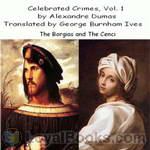 Celebrated Crimes
Celebrated Crimes
Dumas's 'Celebrated Crimes' was not written for children. The novelist has spared no language -- has minced no words -- to describe the violent scenes of a violent time.In some instances facts appear distorted out of their true perspective, and in others the author makes unwarranted charges. The careful, mature reader, for whom the books are intended, will recognize, and allow for, this fact.The first volume comprises the annals of the Borgias and the Cenci. The name of the noted and notorious Florentine family has become a synonym for intrigue and violence, and yet the Borgias have not been without stanch defenders in history... | |
By: Alexandre Exquemelin (c. 1645-1707) | |
|---|---|
 The Pirates of Panama
The Pirates of Panama
This volume was originally written in Dutch by John Esquemeling, and first published in Amsterdam in 1678 under the title of De Americaeneche Zee Roovers. It immediately became very popular and this first hand history of the Buccaneers of America was soon translated into the principal European languages. The first English edition was printed in 1684. Esquemeling served the Buccaneers in the capacity of barber-surgeon, and was present at all their exploits. Little did he suspect that his first hand observations would some day be cherished as the only authentic and true history of the Buccaneers and Marooners of the Spanish Main... | |
By: Alexis de Tocqueville (1805-1859) | |
|---|---|
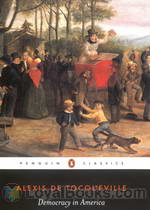 Democracy in America
Democracy in America
Arguably, one of the most influential and insightful pieces of work concerned with American political life, Democracy in America directs itself towards American politics and society, and is considered to be one the best books written on the subject. Published in 2 volumes, in 1835 and 1840, Tocqueville records his findings after studying the thriving nation in his nine month exploratory journey. The young French aristocrat first came to America on an official assignment to study the American penal system, but instead used this as a pretext to study American society... | |
By: Alfred Ayres (1826-1902) | |
|---|---|
 The Verbalist
The Verbalist
Ayres arranges usage problems alphabetically and treats certain areas in greater detail as he sees fit. For example, his first entry is A-AN (articles). His second is ABILITY-CAPACITY, in which he distinguishes between the meanings. The alphabetical arrangement continues through to YOURS. (Introduction by Bill Boerst) | |
By: Alfred Binet (1857-1911) | |
|---|---|
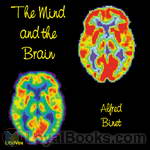 The Mind and the Brain
The Mind and the Brain
Today, almost every layperson understands the concept of intelligence tests and can glibly discuss IQ scores. In fact, these have become so common in the popular imagination that magazines, websites and pop quizzes offer to assess your intelligence at the drop of a hat! In this scenario, it's interesting to recall the very first person who proposed the concept of measurable intelligence. Alfred Binet was basically a clinical psychologist whose wide-ranging interests in learning difficulties faced by school children prompted him to undertake extensive studies in human cognition, psychology, learning and behavior... | |
By: Alfred Dreyfus (1859-1935) | |
|---|---|
 Five Years of My Life 1894-1899
Five Years of My Life 1894-1899
Alfred Dreyfus, a Jewish captain in the French Army was court martialed in 1894 on a trumped up charge of treason and condemned to life imprisonment on Devil’s island, a penal colony off French Guiana. His prison diary, published as Five Years of My Life in 1901 is a heroic tale of survival against daunting odds: isolation, deprivation, torture . . Alfred left behind in Paris his wife Lucie, who, forbidden to join her husband in exile, struggled to protect their two children from the rampant anti-Semitism that swirled about them, while she begged her husband to hold onto life as she tried to clear his name... | |
By: Alfred John Church (1829-1912) | |
|---|---|
 Stories from Virgil
Stories from Virgil
Alfred J. Church created 26 stories from the original Greek version of Virgil's Aeneid. He included well-known ones, such as "The Horse of Wood" and "The Love and Death of Dido," as well as many others perhaps less well-known, such as "King Evander" and "The Funeral Games of Anchises." | |
By: Alfred Marshall (1842-1924) | |
|---|---|
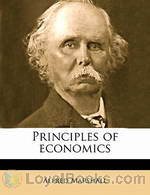 Principles of Economics
Principles of Economics
“The most valuable of all capital is that invested in human beings.” An uncannily prophetic quote from an 1890 book, Principles of Economics by Alfred Marshall presents an idea that has been accepted by major corporations and governments all over the world today. People's understanding of market behavior and how industries operate has its roots in the work done by European economists more than a century ago. Little has changed in terms of principles, though the effects of globalization and technology resulted an unmistakable impact on how business is done today... | |
By: Alfred North Whitehead (1861-1947) | |
|---|---|
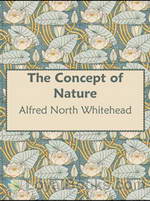 The Concept of Nature
The Concept of Nature
In The Concept of Nature, Alfred North Whitehead discusses the interrelatedness of time, space, and human perception.The idea of objects as ‘occasions of experience’, arguments against body-mind duality and the search for an all-encompassing ‘philosophy of nature’ are examined, with specific reference to contemporary (Einstein, with whose theory of relativity he has some complaints) and ancient (Plato, Aristotle) approaches. | |
By: Alfred Russel Wallace (1823-1913) | |
|---|---|
 Is Mars Habitable?
Is Mars Habitable?
In 1907 Wallace wrote the short book Is Mars Habitable? to criticize the claims made by Percival Lowell that there were Martian canals built by intelligent beings. Wallace did months of research, consulted various experts, and produced his own scientific analysis of the Martian climate and atmospheric conditions. Among other things Wallace pointed out that spectroscopic analysis had shown no signs of water vapor in the Martian atmosphere, that Lowell’s analysis of Mars’ climate was seriously flawed and badly overestimated the surface temperature, and that low atmospheric pressure would make liquid water, let alone a planet girding irrigation system, impossible. | |
By: Alice Bacon (1858-1918) | |
|---|---|
 Japanese Girls and Women
Japanese Girls and Women
A clear and delightful peek into the world of Japanese girls and women of the late 1800s: their childhood, education, marriage and intimate family life. And it is done by someone who admires the immense resources, abilities and strength shown by all of these girls and women. The intricate customs that bind the society together and must be learned by every girl, such as the annual Doll ceremony are explained as well as the difficult life of a Japanese wife of this period. Life among the nobles and upper class in the courts and castles, something long hidden away, is explored... | |
By: Alice Calhoun Haines (1874-1965) | |
|---|---|
 Luck of the Dudley Grahams
Luck of the Dudley Grahams
The Luck of the Dudley Grahams is the story of the four Graham children and their recently widowed mother, trying to make ends meet by taking boarders into their somewhat eccentric home, as told by 17-year-old Elizabeth to her diary. She chronicles their struggles with the boarders, housekeeping on a very tight budget, and the adventures of her three younger siblings. If the category existed at the time, this would be more of young adult novel than a children's book, as Elizabeth has her moments of angst and worry about herself, her family, and their future. - Summary by Colleen McMahon | |
By: Alice Lady Lovat | |
|---|---|
 The Marvels of Divine Grace
The Marvels of Divine Grace
These are Alice Lady Lovat's meditations on the treatise "Del Aprecio y Estima de la Divina Gracia," written by the prolific Roman Catholic theologian and mystic Juan Eusebio Nieremberg, S.J. (1595-1658). Nieremberg's treatise was published in 1638 in Madrid, where he taught Sacred Scripture at the Jesuit Colegio Imperial. Abbot Oswald Hunter-Blair, O.S.B. wrote the preface for Lovat's book, which bears an imprimatur. (Introduction by dave7) | |
By: Alice Morse Earle (1851-1911) | |
|---|---|
 Home Life in Colonial Days
Home Life in Colonial Days
CHAPTER I HOMES OF THE COLONISTS When the first settlers landed on American shores, the difficulties in finding or making shelter must have seemed ironical as well as almost unbearable. The colonists found a land magnificent with forest trees of every size and variety, but they had no sawmills, and few saws to cut boards; there was plenty of clay and ample limestone on every side, yet they could have no brick and no mortar; grand boulders of granite and rock were everywhere, yet there was not a single facility for cutting, drawing, or using stone... | |
By: Allan Fea (1860-1956) | |
|---|---|
 Secret Chambers and Hiding Places
Secret Chambers and Hiding Places
“Secret Chambers and Hiding Places” is a collection of concealments and their uses, almost all within England, although a very few passages and chambers in continental Europe are mentioned, Jacobite hidey holes in Scotland, while the final chapter of the book covers Bonnie Prince Charlie’s wanderings around Scotland, among caves and other hiding places. Most chapters are devoted to historical events; such as the the seventeenth century persecution of roman catholics (with many large houses having specially constructed “priests’ holes”), or various unpopular monarchs and their hiding places... | |
By: Allen H. Godbey (1864-1948) | |
|---|---|
 Great Disasters and Horrors in the World's History
Great Disasters and Horrors in the World's History
"Mankind is constantly astonished by reports of mishaps and disasters of manifold character, when there is seldom room for astonishment. A large proportion of the calamities reported from day to day are directly due to the haste, greed, and heedlessness of man himself, and need no comment. But there is a large class of disasters, due solely to meteorological or geological conditions, which surpass all others in magnitude and appalling destruction. In such cases men insist on prating about “mysterious visitations,” as though these occurrences were subject to the dominion of no law. To an examination of such is this book devoted." From the preface. | |